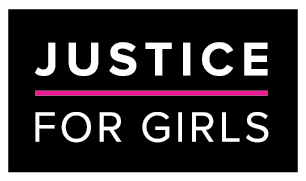|
Access to Housing
|
Since our inception in 1999, Justice for Girls has advocated--domestically and internationally-- for girls’ rights to adequate housing and an adequate standard of living.
In 2008, we released More Than Bricks and Mortar: A Rights Based Strategy to Prevent Girl Homelessness in Canada. The housing strategy, led by young women who have experienced poverty, is a road map for ensuring girls’ human rights are respected and girls stop facing homelessness in Canada. The housing strategy explains we must go beyond a ‘bricks and mortar’ approach and ensure girls’ full human rights to stop girl homelessness.
As a result of our advocacy, the United Nations Committee on Economic, Social, and Cultural Rights in 2006 called on Canada to specifically provide housing and services for girls who are homeless:
"The Committee recommends that the State party [Canada] give special attention to the difficulties faced by homeless girls, who are more vulnerable to health risks and social and economic deprivation, and that it take all necessary measures to provide them with adequate housing and social and health services." Recommendation 57 of the Concluding Observations of the UN Committee on Economic, Social, and Cultural Rights at its 2006 review of Canada's compliance with the International Covenant on Economic, Social and Cultural Rights.
In 2008, we released More Than Bricks and Mortar: A Rights Based Strategy to Prevent Girl Homelessness in Canada. The housing strategy, led by young women who have experienced poverty, is a road map for ensuring girls’ human rights are respected and girls stop facing homelessness in Canada. The housing strategy explains we must go beyond a ‘bricks and mortar’ approach and ensure girls’ full human rights to stop girl homelessness.
As a result of our advocacy, the United Nations Committee on Economic, Social, and Cultural Rights in 2006 called on Canada to specifically provide housing and services for girls who are homeless:
"The Committee recommends that the State party [Canada] give special attention to the difficulties faced by homeless girls, who are more vulnerable to health risks and social and economic deprivation, and that it take all necessary measures to provide them with adequate housing and social and health services." Recommendation 57 of the Concluding Observations of the UN Committee on Economic, Social, and Cultural Rights at its 2006 review of Canada's compliance with the International Covenant on Economic, Social and Cultural Rights.
|
"As signatories to various United Nations treaties, states recognize....the right of everyone to an adequate standard of living for himself [sic] and his [sic] family, including adequate food, clothing and housing, and to the continuous improvement of living conditions." - International Covenant on Economic, Social and Cultural Rights, Article 11 |
"The right to housing should not be interpreted in a narrow or restrictive sense which equates it with… the shelter provided by merely having a roof over one's head ...Rather it should be seen as the right to live somewhere in security, peace and dignity." - General Comment Number 4, Article 11(1) International Covenant on Economic, Social and Cultural Rights. |
"States Parties recognize the right of every child to a standard of living adequate for the child's physical, mental, spiritual, moral and social development."
- UN Convention on the Rights of the Child Article 27 (1)
- UN Convention on the Rights of the Child Article 27 (1)

